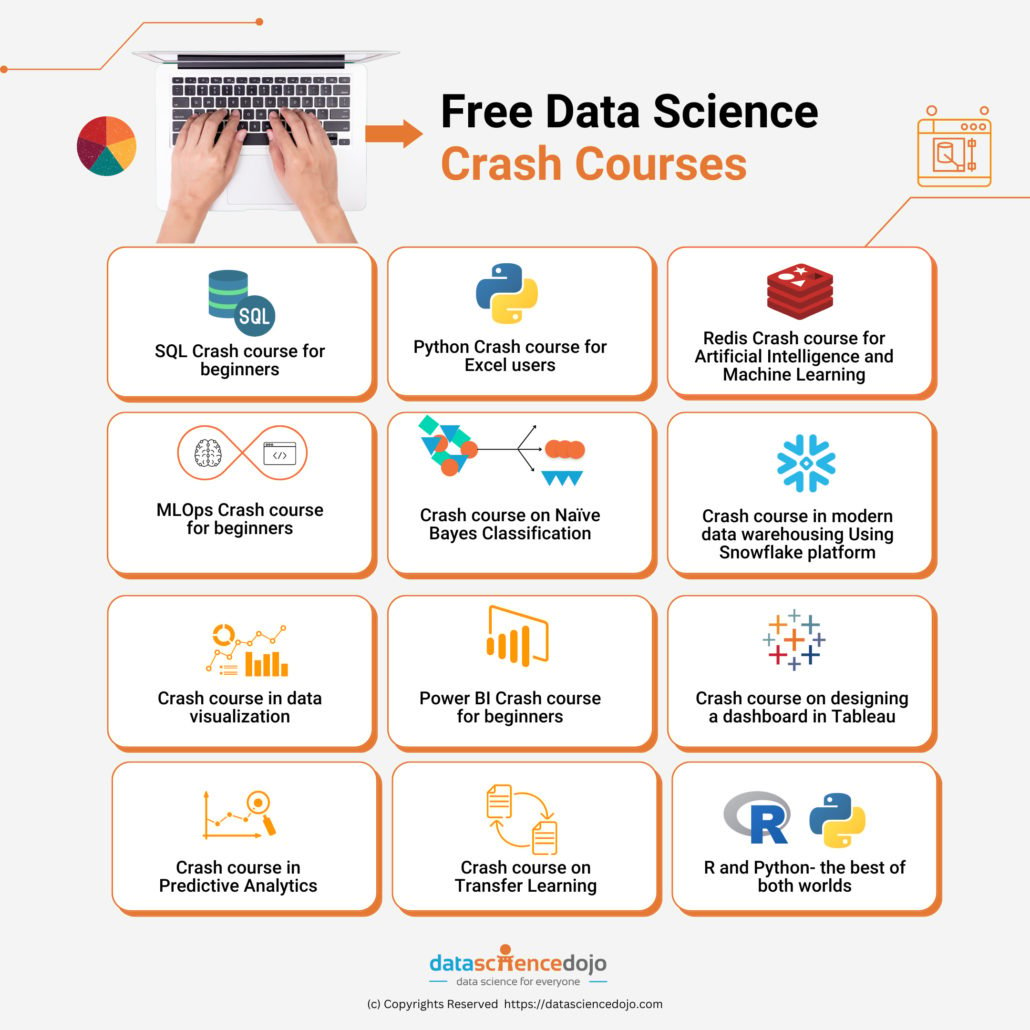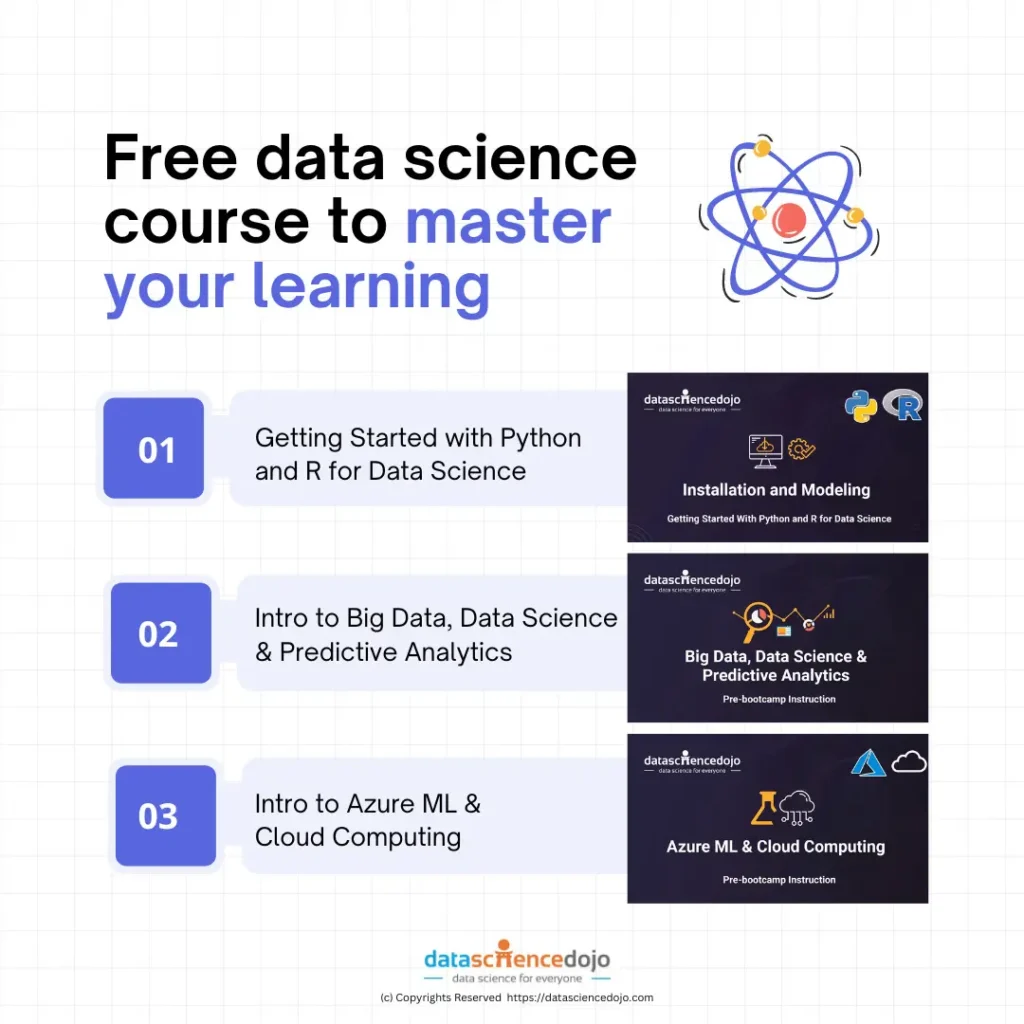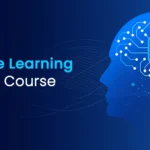From Curious Observer to Data Whisperer: My Journey Through a Data Science Course
I remember feeling stuck. Not in a bad job, but in a routine that felt… flat. My days blurred into one another, and while I was good at what I did, there was no spark, no "aha!" moment. Then, something started buzzing around me: "data science." It sounded like something out of a futuristic movie, a secret language spoken by a select few who could magically predict things and solve complex problems. Honestly, it intimidated me. But it also fascinated me.
Could someone like me, who wasn’t a math genius or a coding wizard, actually understand this "data science" thing? This is the story of how I went from a curious observer to someone who now feels like they can truly "talk" to data, all thanks to taking a Data Science Course.
The Spark: Why Data Science Suddenly Felt Like My Next Adventure
Before my journey, I’d hear snippets: "data-driven decisions," "machine learning," "big data." It all sounded incredibly powerful. Companies were using it to understand their customers better, to create better products, and even to save lives. I started to notice how much of our modern world runs on data. Every click, every purchase, every interaction leaves a trail. And someone, or something, was making sense of all that.
I wasn’t looking for a magic bullet, but I was looking for a challenge, something that felt relevant and exciting. The idea of being able to uncover hidden patterns, to tell stories with numbers, and to help make smarter choices for businesses (or even for my own projects!) was incredibly appealing. I didn’t want to just consume data; I wanted to understand it. That’s when I decided: it was time to learn data science.
Taking the Leap: Choosing the Right Data Science Course for Me
The first step was the hardest: where do you even begin? A quick search for "Data Science Course" brought up a mountain of options – online courses, bootcamps, university programs. It felt overwhelming. My advice to anyone at this stage is simple: don’t rush.
Here’s what I looked for, and what I recommend you consider:
- A Beginner-Friendly Curriculum: I needed a course that started from the absolute basics, assuming I knew nothing (which was mostly true!). Look for courses that introduce programming languages like Python or R from scratch, and build up statistical concepts gradually.
- Hands-on Projects: This was non-negotiable for me. I learn by doing. I wanted a course that had plenty of practical exercises and, most importantly, guided projects that I could eventually show off. Theory is good, but applying it is where the real learning happens.
- Experienced (and Understandable) Instructors: I wanted people who could explain complex ideas in simple terms, not just throw jargon at me. Look for reviews about the instructors’ teaching style.
- Community and Support: Learning something new can be tough. Knowing there’s a community of fellow learners and instructors who can help when you get stuck makes a huge difference. Forums, Q&A sessions, or even live classes were important.
- Flexibility: As someone with other commitments, an online Data Science Course was perfect. I could learn at my own pace, fitting it around my schedule.
After a lot of research, comparing syllabi, and reading reviews, I finally picked a course that felt like the right fit. It promised to take me from zero to understanding real-world data problems.
The Journey Begins: My First Steps into the Data World
The initial days were a mix of excitement and mild panic.
1. Python: My New Language
Learning Python felt like learning a new language. At first, it was just lines of cryptic text. But then, slowly, the words started to make sense. I learned how to tell the computer to load data, to sort it, to filter it. It was like teaching a very powerful, very literal assistant to do exactly what I wanted. The course broke it down into small, digestible chunks, with exercises after each lesson, which was incredibly helpful.
2. Statistics: More Than Just Numbers
My memories of high school statistics were hazy at best. But in the context of data science, statistics suddenly became fascinating. I wasn’t just memorizing formulas; I was learning why we use them. How do you find the average? What does "standard deviation" actually mean for a set of customer reviews? These concepts became tools to understand the story hidden in the numbers.
3. Data Cleaning: The Unsung Hero
This was an eye-opener. I thought data would just arrive neatly packaged. Oh, how wrong I was! The course taught me that real-world data is messy – missing values, typos, inconsistent formats. Learning how to clean and prepare data, often called "data wrangling," felt like detective work. It’s often the most time-consuming part, but also the most crucial, because bad data leads to bad insights.
4. Data Visualization: Making Data Speak
This was perhaps my favorite part early on. After cleaning the data, I learned how to create charts, graphs, and plots. Suddenly, those dry numbers transformed into beautiful, insightful visuals. A trend that was invisible in a spreadsheet would pop out clearly in a line graph. It was like giving a voice to the silent data. I realized that a good visualization could tell a whole story in a glance.
Diving Deeper: Unlocking Predictive Power with Machine Learning
As I progressed, the topics became more advanced, but the foundational knowledge I’d built made them approachable. This is where the magic of "prediction" truly came alive.
1. Machine Learning: Teaching Computers to Learn
This was the big one. The course introduced me to machine learning – not as some futuristic robot overlord, but as a set of techniques to teach computers to find patterns and make predictions based on data, without being explicitly programmed for every single task. I learned about different types of models:
- Predicting numbers: Like estimating house prices based on features.
- Classifying things: Like telling if an email is spam or not spam.
- Grouping similar items: Like segmenting customers into different groups.
It was exhilarating to build my first predictive model that could actually make an educated guess about something new.
2. Ethical Considerations: More Than Just Code
A good Data Science Course doesn’t just teach you the tools; it also teaches you responsibility. We discussed the ethics of using data, bias in algorithms, and the importance of privacy. This showed me that data science isn’t just a technical skill; it’s a field with real-world implications that require careful thought and ethical judgment.
Real-World Impact: Building a Portfolio and Finding My Voice
The projects were the backbone of my learning. Each project was like a mini-adventure. One project involved analyzing customer reviews to find common themes, another involved predicting housing prices, and yet another focused on understanding sales trends.
These aren’t just academic exercises. They become your portfolio. When you’re ready to look for opportunities as a Data Analyst or a Junior Data Scientist, these projects are your proof. They show potential employers that you don’t just know the theory; you can apply it. I started building a collection of projects on platforms like GitHub, showcasing my skills and my journey.
The Transformation: Where I Am Now, Thanks to My Data Science Course
Today, I feel a profound shift. I’m no longer just a curious observer; I’m an active participant in the data-driven world. I can look at a dataset and not feel overwhelmed, but rather see a puzzle waiting to be solved, a story waiting to be told.
My Data Science Course didn’t just teach me Python or statistics; it taught me a new way of thinking. It gave me the confidence to approach problems systematically, to ask the right questions, and to find answers using evidence. I’ve started applying these skills in my current role, bringing data-backed insights to discussions, and I’m actively exploring new career paths in areas like business intelligence and data analysis. The demand for people with these skills is immense, and I feel much more prepared for the future.
Your Turn: Is a Data Science Course for You?
If my story resonates with you, if you’re curious about the power of data, and if you’re looking for a challenging yet incredibly rewarding learning experience, then yes, a Data Science Course might just be your next big adventure.
Here’s my final piece of advice:
- Don’t be intimidated: Everyone starts somewhere. What matters is your willingness to learn and your curiosity.
- Start small: You don’t need to know everything on day one. Focus on mastering the basics first.
- Practice, practice, practice: The more you work with data, the more intuitive it becomes.
- Embrace challenges: You will get stuck. That’s part of the learning process. Use it as an opportunity to ask questions and learn from others.
Taking that leap into a Data Science Course was one of the best decisions I’ve made. It opened up a whole new world for me, turning abstract concepts into practical skills and transforming my perspective on problems. If you’re ready to uncover the hidden stories in data and empower yourself with truly valuable skills, there’s no better time to start your own data science journey.



